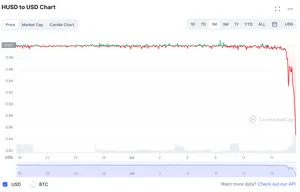DegenTown first suffered issues in July, when the project's Twitter account was allegedly hacked, and users were tricked into approving a contract that drained their wallets. One individual behind the project promised they would compensate the users whose wallets were drained, but never did.
The project ultimately rug pulled instead, with Magic Eden acknowledging it in a blog post and Twitter thread on August 17. They wrote that they were "urging the original Degen Town founders to return the funds" — however, this is complicated somewhat by the fact that the identity of one of them is not known to Magic Eden. They explained, "Our prior policy was that we doxxed founders. NFTRamo claimed to be an advisor but we learned that he was actually the founder of the project and used being an advisor as a way of skirting our doxxing processes." This is not the first time their identity verification process was sidestepped — they introduced it after a serial rugpuller used their platform to anonymously sell and then rug pull another NFT project, but that same person was able to do it again only a few months later.
The DegenTown project minted 8,000 NFTs for 3 SOL apiece, bringing in $923,000. Beyond that, the creators took 7.5% in royalties on secondary sales. Magic Eden has said that they were able to get one of the two founders to return the funds they'd earned from the mint, and that they planned to use them to compensate buyers.




![Screenshot of messages between a blurred individual and Patrick Hillman.
Individual: "Hi Patrick this is [blurred], I had a conversation with Mark J Marshall, can you confirm the Zoom call we had on Thursday with you?"
Patrick Hillman: "That wasn't me."
Individual: "they impersonated your hologram
[LinkedIn link]
This person sent me a zoom link then your hologram was in the zoom , please report the scam"](https://primary-cdn.web3isgoinggreat.com/entryImages/resized/binance-linkedin-scam_300.webp)



